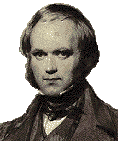
The Victorian Era philosophy was a balance between rationalism and revelation. Organisms were thought to be variations on an ideal theme or form, called the archetype, which were altered by functional and ecological habitats. Some argued that form dominated function, others argued the reverse.

Charles Darwin
Then Darwin's theory of natural selection was proposed. It was the exact opposite of the Archetype theory in that it was empirical, mechanistic, and historically based with no abstract ideals. The role of a Deity was uncertain and irrelevant. Darwin stated that there was unity of descent modified by conditions of life. He believed that species could transmutate into other species and that vast quantities of time were involved. His answer to the question of the relationship between form and function was that natural selection shapes the modifications of inherited features of organisms to perform new functions. These functions are limited by historical and genealogical compromises on the possibilities of form. This theory is called materialism.